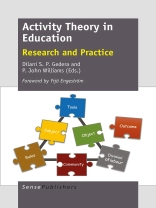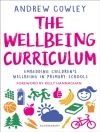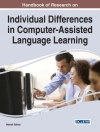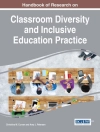Activity Theory in Education: Research and Practice brings together cutting-edge scholars from a number of continents. Through in-depth case studies the authors highlight how Activity Theory is used in education and discuss the theoretical as well as pragmatic use of Activity Theory frameworks in a range of contemporary learning contexts. The first section of the book focuses on empirical research on using Activity Theory in analysing students’ and teachers’ experiences of learning and teaching in face-to-face and online learning contexts. The second section contains insights in identifying historical and systemic tensions in educational contexts using Activity Theory. The third section discusses conceptual and contextual aspects of educational contexts through Activity Theory, and Section four discusses the application of Activity Theory in understanding teachers’ Pedagogical Content Knowledge and curriculum development.
In spite of the widespread and rapidly increasing use of Activity Theory in educational research, few collections of this work are available. Activity Theory in Education: Research and Practice is such a much needed collection of practical experiences, theoretical insights and empirical research findings on the use of Activity Theory in educational settings.” – Yrjö Engeström, Centre for Research on Activity, Development and Learning (CRADLE), The University of Helsinki.
Table des matières
Foreword.- Preface.- The Vygotsky Project in Education – The Theoretical Foundations for Analysing the Relations between the Personal, Institutional and Societal Conditions for Studying Development.- Section I: Empirical Research on Using Activity Theory in Analysing Students’ and Teachers’ Experiences of Learning and Teaching in Face-to-Face, Blended and Fully Online Learning Contexts.- Using Activity Theory to Understand Student Teacher Perceptions of Effective Ways for Promoting Critical Thinking through
Asynchronous Discussion Forums.- The Standard Child: National Testing Made Complex through the Lens of Cultural-Historical Activity Theory.- Section II: Insights in Identifying Historical and Systemic Tensions in Educational Contexts Using Activity Theory.- The Application of Activity Theory in Identifying Contradictions in a University Blended Learning Course.- Systemic Tensions in American Teacher Unions: An Activity Systems Analysis of Teacher Unions and Their Rolein Society.- An Activity Theoretical Approach towards Distributed Leadership for One-to-One Computing in a Singapore Elementary School.- Section III: Understanding Conceptual and Contextual Aspects of Educational Contexts through Activity Theory.- The Interactions between Emotion, Cognition, and Action in the Activity of Assessing Undergraduates’ Written Work.- Turning Challenges into Opportunities: Investigating Technology Integration in Tertiary Level English Language Programmes through the Lens of Activity Theory.- Activity Theory and Online Community Education for Sustainability: When Systems Meet Reality.- Activity Theory Tools: What about Organisational Culture?.- Section IV: Application of Activity Theory in Understanding Teachers’ PCK and Curriculum Development.- Exploring Teacher Pedagogical Content Knowledge (PCK) Development Using Co Res (Content Representations).- Teachers Designing Classroom Curriculum through the Lens of Cultural-Historical Activity Theory.












